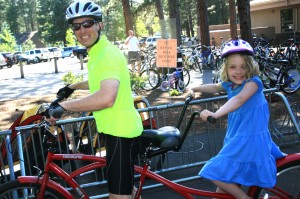 Holidays are fast approaching. That means lots of eating out, consuming richer foods than normal, and drinking. And all those surplus calories? They end up in the biological bank account. But unlike our federal budget, it’s a surplus no American needs these days. If we could only save money like we store calories in this country, we’d be the envy of the financial world.
Holidays are fast approaching. That means lots of eating out, consuming richer foods than normal, and drinking. And all those surplus calories? They end up in the biological bank account. But unlike our federal budget, it’s a surplus no American needs these days. If we could only save money like we store calories in this country, we’d be the envy of the financial world.
Evolutionary biology does not make things easy for us. Our caloric engines were fine-tuned millennia ago, when fuel was scarce and daily expenditures were high. Nowadays, we would benefit from much more wasteful motors — we’re awash in food. Still, it beats chasing wildebeest all day long.
As a result of all this biological programming, many people discover they do not lose weight when they start to exercise. So focus instead on the life-prolonging benefits (which confer to everyone, fat or thin). In fact, I counsel patients that I would far rather have an overweight exerciser than a non-exerciser of normal weight.
Most studies show exercise reduces risk of cardiovascular events (heart attack) by up to 50%. This exceeds the benefits of statins (like lipitor or crestor), and at a fraction of the cost. Recent studies show that these same cardiovascular gains are obtained even with modest investments of exercise.
And don’t forget that physical activity is also proven to improve one’s sleep, moods, and sex life.
No time to exercise? Frequent injuries? Travel interrupts your schedule? Here are five tricks to get you started.
1. Use gravity to your advantage. We typically have nothing nice to say about poor old gravity. It makes our skin sag, our roofs leak and causes our cellphones to occasionally end up in the toilet. But start thinking about exercise in a vertical rather than linear fashion and you’ve got a quick workout in the comfort of your own office or home (try walking the stairs, jumping rope, doing squats, or even standing). There’s increasing evidence that low-intensity, intermittent activity (like standing instead of sitting at work, or sitting on a therapy ball instead of in a chair) is as important as exercise in preventing cardiovascular disease, diabetes, and obesity.
2. Don’t try and imitate Lance Armstrong. He’s a pro, after all. You’re far more likely to get injured or burn out with this strategy. Instead, make your workouts ridiculously simple and short, so they’re almost impossible to skip.
3. And speaking of skipping, don’t skip days. Why not? You’ll inevitably fall off the wagon. Think back to when you learned one of your most-ingrained habits, say, brushing your teeth. Did your parents tell you to brush five minutes three times per week? Of course not. They told you to do it two minutes every day — same weekly duration, but more reliable. Your exercise program must be every day too: rain or shine, warm or cold, light or dark, busy or idle, or you’ll end up with tooth decay.
4. Find a buddy. I know that’s as original as a side of cranberries this time of year, but it really works. If the buddy is a friend, your workout can even double as a social engagement. And in these busy times, who can turn down an opportunity to multi-task?
5. Lastly, a word of advice cribbed from one of my cardiologist professors in medical school: Walk your dog, even if you don’t have one.
